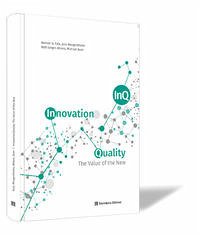The reason why humanity makes progress lies in the imperative sense that what we are experiencing in the here and now, where we stand at this moment, never quite seems good enough. Humanity has the constant feeling that there has to be something that is at least a little bit better than what exists right now. The vehicle of progress is innovation – action resulting in the realization of “the New.” And as a result of our belief that progress is intrinsically always a good thing, we feel that everything that comes with a label on it saying “innovation” will also probably be a good thing. Innovation – one of those terms that is overused by so many people, especially in management literature. It’s now a thinly veiled secret that innovating is the best and most sustainable way to improve competitiveness, raise profits and turnover, and get more of (or out of) practically everything. But moving beyond this starry-eyed enthusiasm for progress and an indiscriminate cult centering around the term “innovation,” it really is time to pose some important questions: What is the actual use of progress? What is the value of “the New”? Does an innovation make everything better or just different? The aim of this book is to propose a new quantitative variable to express the value and worth of “the New.” The name we have coined for this variable: InnovationQuality, or simply InQ. About the authors Werner G. Faix, Jens Mergenthaler, Rolf-Jurgen Ahlers, and Michael Auer work in a variety of areas for Steinbeis. In their book on Innovation-Quality, the authors examine the twin/coupled phenomenon of Innovation and quality, posing the question: What is the value of the New?
Bitte wählen Sie Ihr Anliegen aus.
Rechnungen
Retourenschein anfordern
Bestellstatus
Storno

